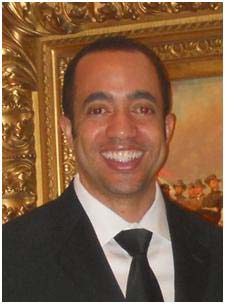
Solo practitioners enjoy various benefits that larger firm practitioners may lack, such as complete freedom over the cases they choose and the nature of their practice. That being said, there are some downsides to becoming a solo practitioner, including reduced staffing and a lower average salary as compared to larger firm practitioners. All in all, you should weigh your options and consider becoming a solo practitioner if it is the right fit for you.
1. Why did you decide to become a solo practitioner?
It just kind of happened. I was headed towards a Big Law job when a family emergency pulled me away. When I came back the firm was on its way out and needing a place to go I signed on with a very small general practice firm. Once again luck would have it and they too were falling on hard times. The one positive is that a client wanted to keep me on and after talking about it with my wife, I took the case. We later settled the case on the eve of trial for a good sum of money.
I never wanted to be a solo because of the pressure to keep money coming in but it has worked out better than I thought.
2. What is the best part of being a solo practitioner?
I get to pick my own cases and the people I work with. It is learning experience and you have to be very diligent about tracking your time and keeping files in order but being able to work on my own timeline is priceless.
3. What is the worst part of being a solo practitioner?
Money. You need a decent amount of capital to keep it going; research costs, filing fees, traveling, depositions, process serving, etc., all cost money. Being alone also means that you don't have a library of been there done that files to review when you have to write a memo, letter, or any other legal document. No mentorship is also a big problem. I'm still in the process of finding an older lawyer I can trust that can share some do's and don'ts with me.
4. What advice would you give to others looking to become a solo practitioner?
I have a general practice that is heavy in the employment/labor practice. I was supposed to do insurance defense in Big law and that would have been horrible. I'm really passionate about the cases I take and that goes a long way to me giving my all to my clients. So my advice would be to find the area of law that you are passionate about. I know it sounds cliché but it is true. I like the cases I get and some of the people. You will unfortunately get a loose cannon or two but that will disappear once you learn how to weed through the phone calls that actually have merit.
You also need to be very active in your local Bar association and attempt to find a more established lawyer that will take you under his/her wing. I have met several of those types but through my own fault I have not reached out to them enough. People are willing to help you but you have to be willing to accept it.
Be good to your clients and always be accessible but let them know that there are limitations. I have had clients that were very respectful of my time and others that would call or just show up (at my house) whenever they had a question. Remember these folks are free advertising for your business. I have generated a lot of business just from word of mouth. Being good won't always work either. Some clients won't be happy regardless of your efforts but you should still treat them with respect.
Lastly I would say protect your license. Get malpractice insurance and keep excellent records of communications between you and your clients. Even the best clients get funny when the bill comes around and having the paperwork detailing your arrangement readily accessible comes in handy.
5. What is a typical day like for you as a solo practitioner?
The typical day all depends on where I am in a given case. If I have a deadline approaching I will spend hours reading cases and sample briefs. When there is a lull it can get pretty peaceful. I don't have a practice yet where I am dealing with dozens of clients on a daily basis so when there is down time I can catch up on other activities.
6. Is there anything else that is important to know about you and your practice, or that you would like to add?
This is not an endeavor for those that want instant gratification. I got lucky between my first and second client but then I hit a stretch with nothing coming in, all of sudden now I find myself with a solid amount of work with more in the pipeline. The cases can take forever and defense lawyers don't care how long it takes to move a case through. I have gone against some of the biggest firms and for the most part they have been very professional but they won't move on the cases unless they see a clear loss. And no matter how good your facts are they still won't see a clear loss so be prepared to sit with a client for a long time.




